Iran urges P4+1 to give ‘documented, well-founded’ response to proposals in Vienna
Iran’s chief negotiator has described as “documented and well-founded” the proposals submitted to the five other signatories of the 2015 nuclear deal in the course of the latest round of talks in Vienna, saying the P4+1 group is now expected to offer a response in a similar vein.
Ali Bagheri Kani held a phone call with Chinese Vice Minister of Foreign Affairs Ma Zhaoxu on Wednesday, as Iran and the P4+1 states are about to start a new round of negotiations in the Austrian capital later on Thursday, aimed at securing a removal of the sanctions imposed by the US on Iran after its withdrawal from the accord and reviving the embattled deal.
During the phone conversation, Bagheri Kani, who serves as deputy foreign minister for political affairs, hailed China’s support for Iran in important issues such as prioritizing the removal of unlawful US sanctions and also Iran’s demand for guarantees that Washington would not abandon the nuclear deal again.
He praised great cooperation between Iran and China and said the two countries see eye to eye on many international issues, including the Vienna talks.
The senior Iranian diplomat also outlined some details pertaining to Tehran’s drafts put forth during the seventh round of talks in Vienna, which he described as “documented and well-founded.”
“The most obvious reaction that the opposite sides could show to this constructive move (by Iran) is for them to offer their own documented and well-founded views in return,” he said.
One of the two proposals revolves around the removal of the US sanctions, while the other concerns Iran’s retaliatory steps away from the nuclear deal, officially called the Joint Comprehensive Plan of Action (JCPOA) in the aftermath of Washington’s exit.
Tehran has said the drafts are nothing new and only contain certain amendments and additions to earlier texts agreed upon by both sides during the previous six rounds of the talks.
The Chinese diplomat, for his part, called on the parties to the Vienna talks to return to the negotiating table with a constructive approach.
He said continuation of consultations and coordination between Tehran and Beijing on the Vienna talks would play an effective role in advancing the process.
The JCPOA was abandoned by former US President Donald Trump in May 2018. Trump then targeted Iran’s economy with what he called a “maximum pressure” campaign, which failed to compel Iran to negotiate a “new deal.”
Iran and the five remaining parties to the JCPOA began the talks in the Austrian capital in April with the aim of removing the sanctions after the US, under President Joe Biden, voiced a willingness to return to the agreement.
Diplomats from the participant countries gathered in Vienna on Monday for the seventh time, after a hiatus in the talks due to the presidential election in Iran. Five days of intensive talks ended on Friday after the sides returned to their respective capitals for more consultations.
With only a few hours left before the beginning of a new round of the talks, the Iranian chief negotiator arrived in Vienna on Thursday at the head of a delegation.
Bagheri Kani is scheduled to hold talks with Mora and head of the Russian and Chinese teams ahead of the JCPOA Joint Commission session.
EU calls for acceleration of Vienna talks
Meanwhile, the European Union’s foreign policy chief Josep Borrell spoke with Iranian Foreign Minister Hossein Amir-Abdollahian on Wednesday ahead of the resumption of talks in Vienna and said the negotiations must advance “much quicker.”
Spoke today with Iranian Foreign Minister @Amirabdolahian at his request ahead of the next round of #JCPOA negotiations in Vienna tomorrow.
— Josep Borrell Fontelles (@JosepBorrellF) December 8, 2021
I conveyed a sense of urgency: we need to advance much quicker in the negotiations to restore the deal.
“I conveyed a sense of urgency: we need to advance much quicker in the negotiations to restore the deal,” Borrell said in a post on Twitter.
In a phone call with the EU foreign policy chief on Friday, the Iranian foreign minister described the process of negotiations in Vienna “good but slow,” asserting that the West needs to focus on removing the United States’ sanctions against Iran.
“Despite the US violation [of the JCPOA] and the inaction of the three European countries, we are present in the Vienna talks in good faith. Our team has clear, tangible, and practical plans and initiatives at every stage [of talks],” Amir-Abdollahian said.
Talks guided by unity of purpose despite differences: Russia
Meanwhile, the Russian ambassador to international organizations in Vienna, Mikhail Ulyanov, took to twitter to comment on talks between US Special Envoy for Iran Robert Malley, Russian Deputy Foreign Minister Sergei Ryabkov, and the Chinese vice foreign minister.
Malley had said on Twitter that the three sides agreed to “continue close trilateral coordination to achieve our common goal of mutual full JCPOA compliance.”
Reacting to Malley’s post, Ulyanov said, “As you can see from the tweet below we have managed to establish businesslike cooperation with other counterparts at the #ViennaTalks on #JCPOA, including the #US. Very good.”
As you can see from the tweet below we have managed to establish businesslike cooperation with other counterparts at the #ViennaTalks on #JCPOA, including the #US. Very good. Of course many differences still remain. But obviously all of us are guided by the unity of purpose.
— Mikhail Ulyanov (@Amb_Ulyanov) December 8, 2021
He added, “Obviously all of us are guided by the unity of purpose” although many differences still remain in the process.
In another tweet on Wednesday, the senior Russian diplomat said he held a meeting with the EU negotiating delegation, led by deputy foreign policy chief Enrique Mora, and discussed “the way ahead.”
On the eve of the resumption of the seventh round of the #ViennaTalks we met with the #EU team led by Mr. Enrique Mora. We exchanged views on the way ahead. Russia appreciates the valuable role of the EU as the Coordinator at the talks on restoration of the JCPOA. pic.twitter.com/eTQQvaNI71
— Mikhail Ulyanov (@Amb_Ulyanov) December 8, 2021
“Russia appreciates the valuable role of the EU as the Coordinator at the talks on restoration of the JCPOA,” Ulyanov tweeted.
In a meeting in Moscow on Tuesday, Bagheri Kani and Ryabkov discussed the latest developments regarding mutual relations and the 7th round of talks in Vienna.
Yemeni armed forces down F-18 fighter jet, repel US-UK attack: Spokesman
Iran warns against US-Israeli plot to weaken Muslims, dominate region
VIDEO | Public uproar in US against Israeli regime
‘Ghost town’: 70% of Jabalia buildings destroyed by Israel
Mother’s Day: Sareh Javanmardi’s inspiring journey as Paralympic champion and mother
Russia downs over 40 Ukrainian drones as Putin vows 'destruction' on Kiev
VIDEO | Yemen: A bone in Israeli neck
D-8’s role in Iran’s economy after Cairo summit


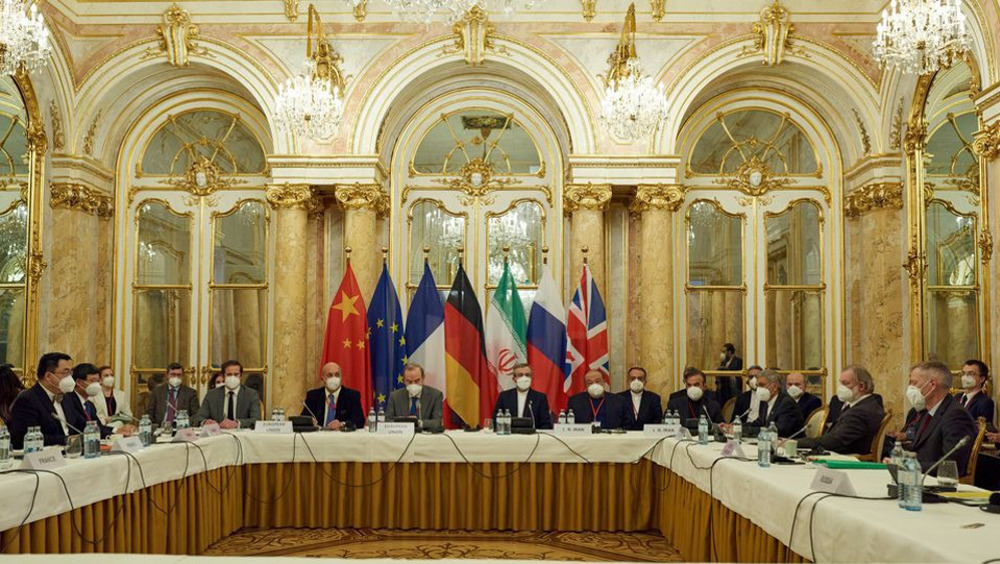
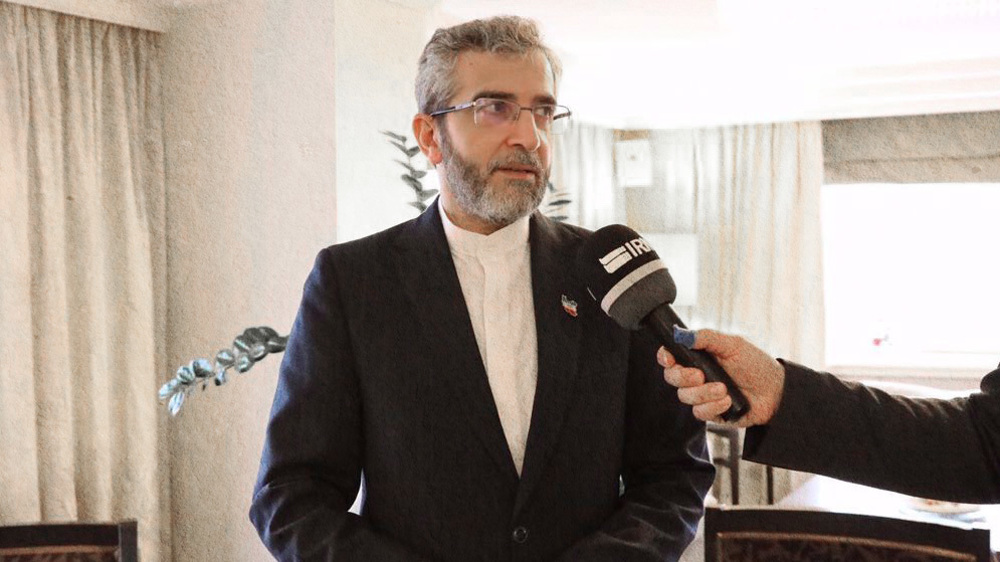
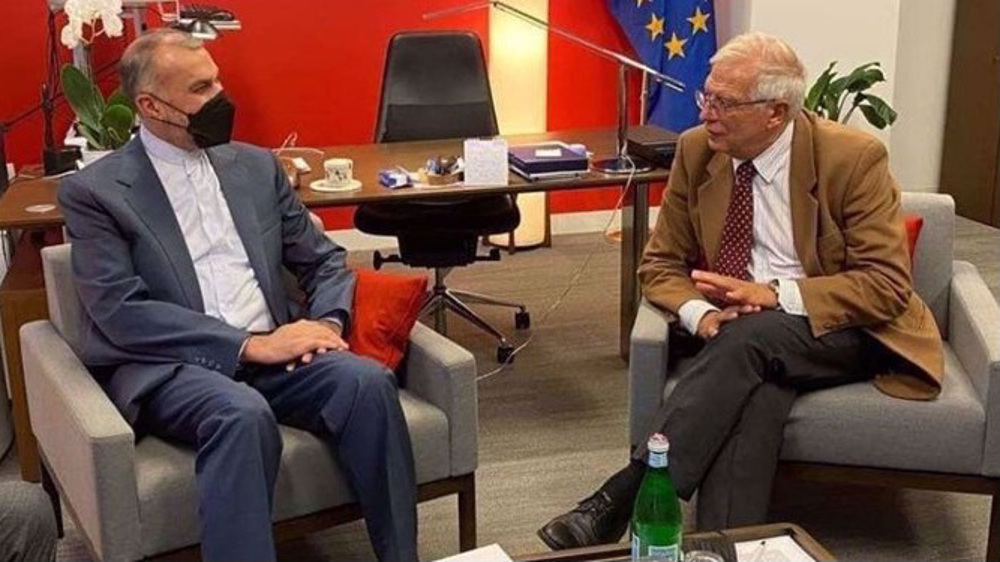
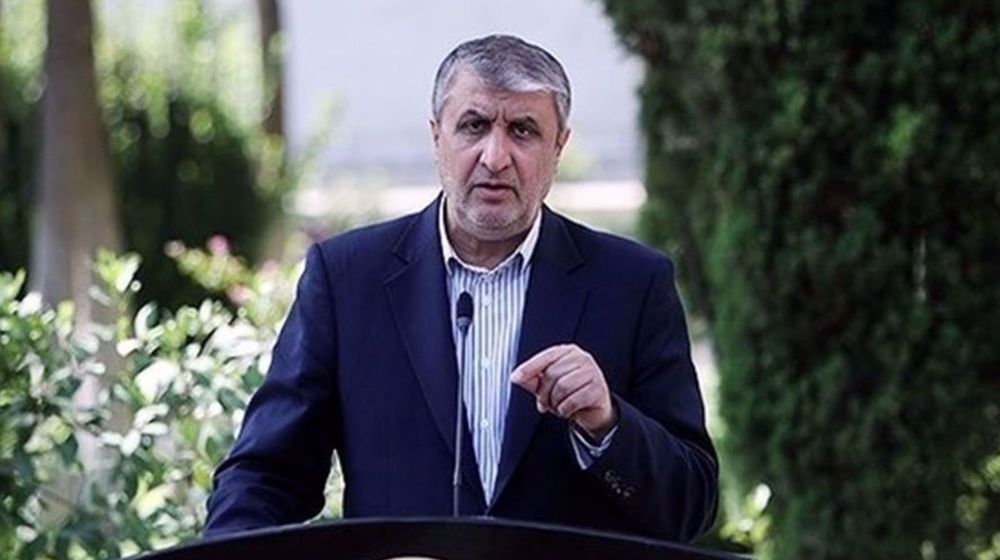
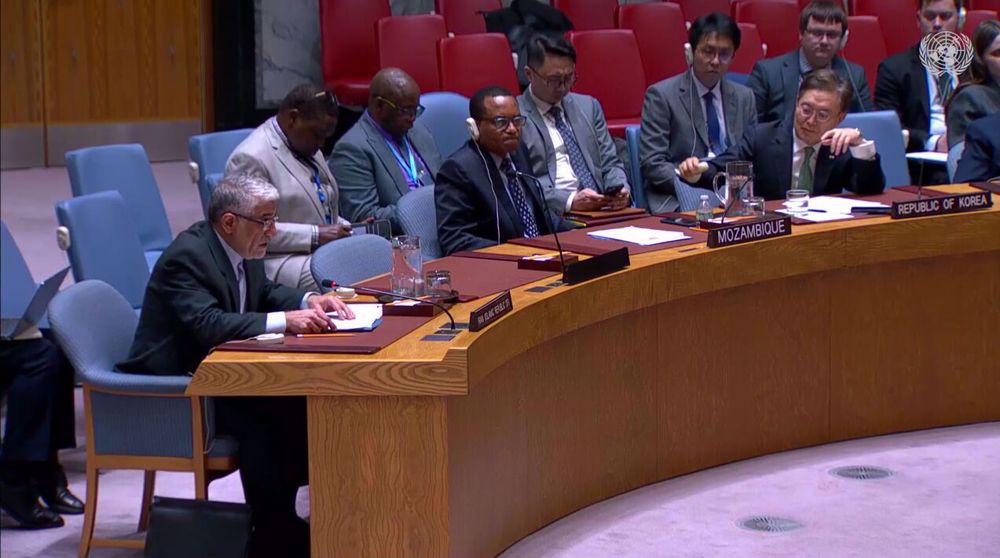
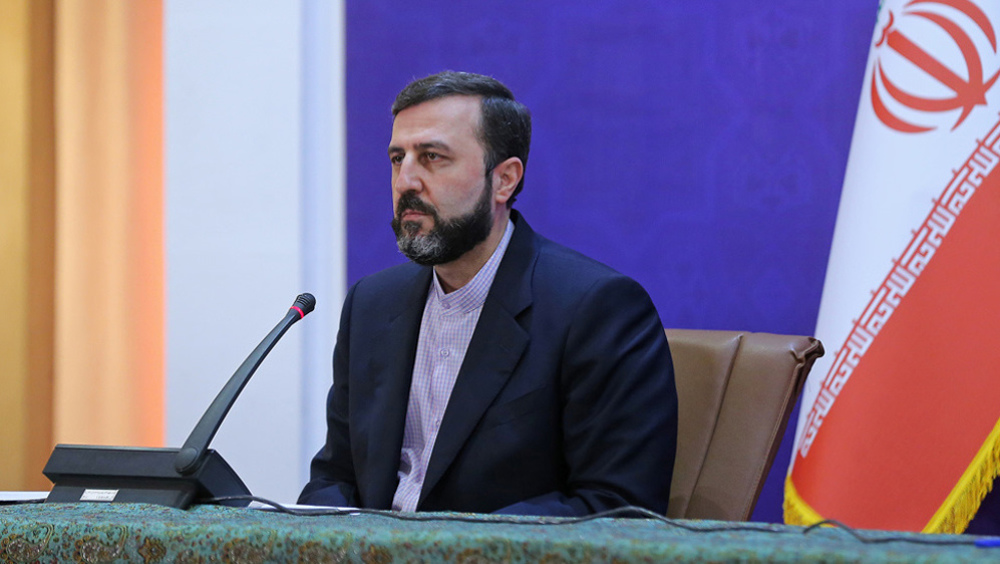




 This makes it easy to access the Press TV website
This makes it easy to access the Press TV website